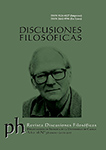Authors
Abstract
According to Kemp Smith, Descartes believed that animals lacked feelings and sensations. This belief is called ‘monstrous thesis’ which I explore here in the light of two Cartesian approaches to animals. In the fi rst place, I analyze their original treatment based on an early metaphysical approach of Descartes, for example, every natural phenomenon must be explained in terms of pure mental scrutiny. As pain would only exist in the understanding, and the animals lack understanding and souls, Descartes would have considered that they did not suffer. In the second place, I examine the Cartesian late naturalism, specifi cally in relation to how animals are considered as machines that could suffer. Lastly, I conclude that the ‘Monstrous Thesis’ is not truly Cartesian because animals are machines with feelings and sensations. However, Descartes’ indulgent attitude towards humans who kill and eat animals, supposes that empathy for beings who could suffer is not necessary. This gives raise to doubts about another ‘Monstrous Thesis.’
Keywords:
References
Carriero, John. Between Two Worlds: A Reading of Descartes' Meditations. Oxfordshire: Princeton University Press, 2009. Print.
Clarke, Desmond. Descartes’ Theory of Mind. Oxford: OUP, 2003. Print. Cottingham, John. "Descartes' treatment of animals". Descartes. Oxford: OUP, 1998. 225-233. Print.
Descartes. Discourse on the Method. The Philosophical Writings of Descartes, Vol. I. New York: Cambridge University Press, 1985. 111-151. Print.
_____. Passions of the Soul. The Philosophical Writings of Descartes, Vol. I. New York: Cambridge University Press, 1985. 328-404. Print.
_____. Meditations on First Philosophy. The Philosophical Writings of Descartes, Vol. II. New York: Cambridge University Press, 1985. 1-62. Print.
_____. The Correspondence. The Philosophical Writings of Descartes, Vol. III. New York: Cambridge University Press, 1991. Print.
Gewirth, Alan. "Clearness and Distinctness in Descartes". Descartes. Oxford: OUP, 1998. 79-100. Print.
Hatfield, Gary. "Animals". A Companion to Descartes. Oxford: Blackwell Publishing, 2008. 404-425. Print.
Regan, Tom & Singer, Peter. Animal Rights and Human Obligations. Englewood Cliffs, NJ: Prentice Hall, 1976. Print.
Smith, Kemp. New Studies in the Philosophy of Descartes. London: Macmillan, 1952. Print.
Sorajbi, Richard. Animal Minds and Human Morals: The Origins of the Western Debate. Ithaca, NY: Cornell University Press, 1993. Print.

 pdf (Español (España))
pdf (Español (España))
 FLIP
FLIP

























